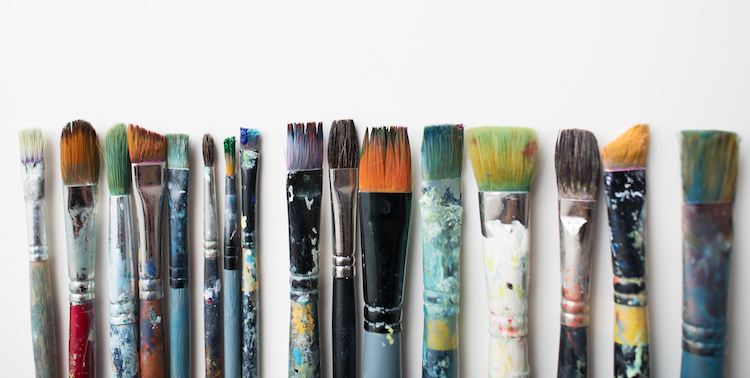Community, Leadership, Experimentation, Diversity, & Education
Pittsburgh Arts, Regional Theatre, New Work, Producing, Copyright, Labor Unions,
New Products, Coping Skills, J-O-Bs...
Theatre industry news, University & School of Drama Announcements, plus occasional course support for
Carnegie Mellon School of Drama Faculty, Staff, Students, and Alumni.
CMU School of Drama
Monday, February 01, 2021
All About Paintbrushes: What Type to Use and How to Clean Them
mymodernmet.com: Paint and paint brushes go hand-in-hand. Although brushes aren’t a requirement when it comes to painting (just ask artist Iris Scott), they are a ubiquitous tool that nearly every artist has in their studio. So, it shouldn’t come as a surprise that you’ve got a lot of choices when it comes to picking out your favorite paint brush.
Subscribe to:
Post Comments (Atom)

4 comments:
This article was very helpful to learning about brushes. I mean I knew the names for the brushes and of course having painted before I had a general gist for what they do, but it was nice to get a firm definition. I have used “the masters” brush clear and it is literally the best thing ever made. It makes a huge difference and is way easier than soap and water. The other thing is that with soap and water you really have to move the brush around a lot which bends the bristles. With “the masters” you can use less and so you have to spend less time cleaning the brush and damaging the bristles. I found the way to repair the brushes super super interesting. I had never heard of that before and I will definitely have to try it. Particularly the part about the eggshell and eggwhite.
As someone who paints a lot I have used all the brush types that are listed in this article though I never really knew exactly what each type of brush is best for; however, that is something that I have learned through trial and error over the years. I do not really make anything using oil paints so I never have had to know how to clean oil paint from a paintbrush. So it was interesting to read a little bit about that process. The thing that intrigued me most about this article was how to repair frizzy brushes and how it includes using an eggshell. I never really thought that eggshells would be good to use with paint brushes but I guess if I have a paint brush that I really like I might just have to try that out. Until then I will just continue keeping my paint brushes and eggshells from each other.
Using the correct paintbrush for what you are trying to achieve and what paint you use is so important, but what could be even more important is keeping your brushes for their full lifespan, which is owed to using them correctly and cleaning them correctly. I am sure most art students remember the lecture many of us get in elementary or middle school, about rinsing a brush under the faucet till the water runs clean, not leaving it in your water jar for too long, etc etc. This article gives a lot of really interesting and important details about picking the right brush and the correct ways to take care of them, including recommending products that are used for specific brushes. This would be a really great article to save and refer back to when the time comes to rejuvenate your brush collection, or revive an old crusty paintbrush.
As someone who did a lot of art growing up, I learned a lot about brushes while learning different art mediums. I LOVE cleaning my brushes, cause why waste a good brush by not clearing it in timely manner? Ask most people in my class, they know that I also pay a lot of attention to the shared brushes in 33, and try to salvage them when possible. Brushes can be expensive, and when taken good care of, can last for a long time. I have watercolor brushes that I got maybe 10+ years ago, and I still use them because they’re still in good state. My oil painting brushes, on the other hand, is a whole other story, as they are extremely hard to clean, but they are still in decent quality I would say. The soap in the article is one I personally use, and I use it not only to clean my brushes, but I’ve also used it to clean out paints on my clothing, and it works like a charm.
Post a Comment